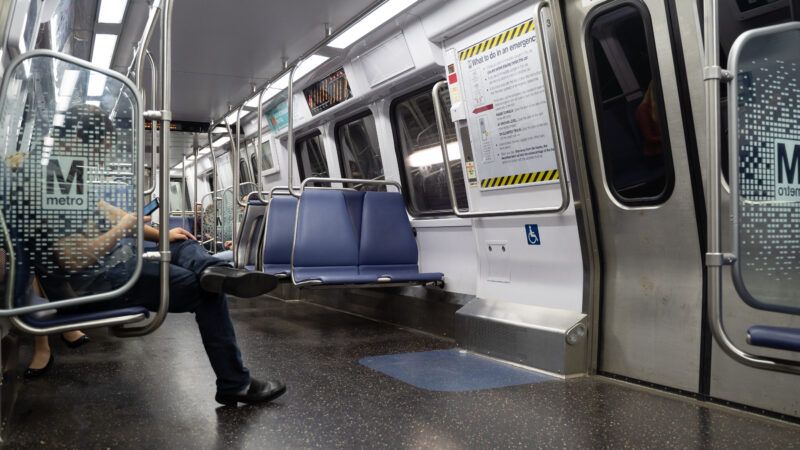D.C.'s Rules for Subway Ads Are Blocked in Federal Court
The transit authority was sued after rejecting an ad that directed viewers to go to a website "to find out about the faith of our founders."

For nearly a decade, the transit authority in Washington, D.C., has faced controversy over restrictive guidelines governing advertisements in the city's subways and busses. Now, it might have to scrap some of them.
The controversial rules prohibit any ad that is "issues-oriented" or "intended to influence members of the public regarding an issue on which there are varying opinions." The guidelines also single out religious ads, prohibiting "advertisements that promote or oppose any religion, religious practice or belief."
Last month, a D.C. district court ruled in favor of a Christian group seeking to challenge the rules, placing a preliminary injunction on part of the guidelines that ban ads "intended to influence members of the public regarding an issue on which there are varying opinions."
The Washington Metropolitan Area Transit Authority (WMATA) first enacted the controversial rules after an anti-Islam activist attempted to buy an advertisement depicting Muhammad in 2015.
In 2017, the American Civil Liberties Union sued WMATA over the guidelines, joined by plaintiffs ranging from vegan group People for the Ethical Treatment of Animals (PETA) to right-wing provocateur Milo Yiannopoulos. That case is still ongoing. In 2018, however, a D.C. district court ruled against a request for a preliminary injunction against WMATA's rules.
But the ACLU has joined another lawsuit challenging the guidelines on First Amendment grounds—this time, to much better success. This latest lawsuit was filed in December 2023 by WallBuilders, an organization that aims to educate the public "concerning the Godly foundation of our country," according to legal records.
When WallBuilders attempted to purchase ads to go in WMATA busses, reading "Christian? To find out about the faith of our founders, go to wallbuilders.com." WMATA rejected the ads, citing their guidelines. When WallBuilders resubmitted the ads, omitting all text except "visit wallbuilders.com," they were still rejected.
WallBuilders sued. On May 21, Judge Beryl A. Howell of the District Court of D.C. granted WallBuilder's motion for a preliminary injunction, halting enforcement on the part of the guidelines that prohibited advertisements seeking "to influence members of the public regarding an issue on which there are varying opinions."
"WMATA is permitted to retain considerable discretion in evaluating the intent and purpose of an ad…but this discretion must be coupled with objective, workable standards," wrote Howell. "Put simply, the utterly undefined use of the phrase '[a]dvertisements intended to influence . . . regarding an issue on which there are varying opinions,' coupled with the lack of any definitions or official guidance and WMATA's inconsistent application of [the guideline], makes clear that [it] is not a reasonable restriction on speech."
The ruling is a major victory for a whole range of controversial groups who want to buy ads on D.C. buses and subways. It also sends a clear message to WMATA: While it can place some restrictions on the content of ads, its rules have to be well-defined and narrowly tailored.


Show Comments (16)